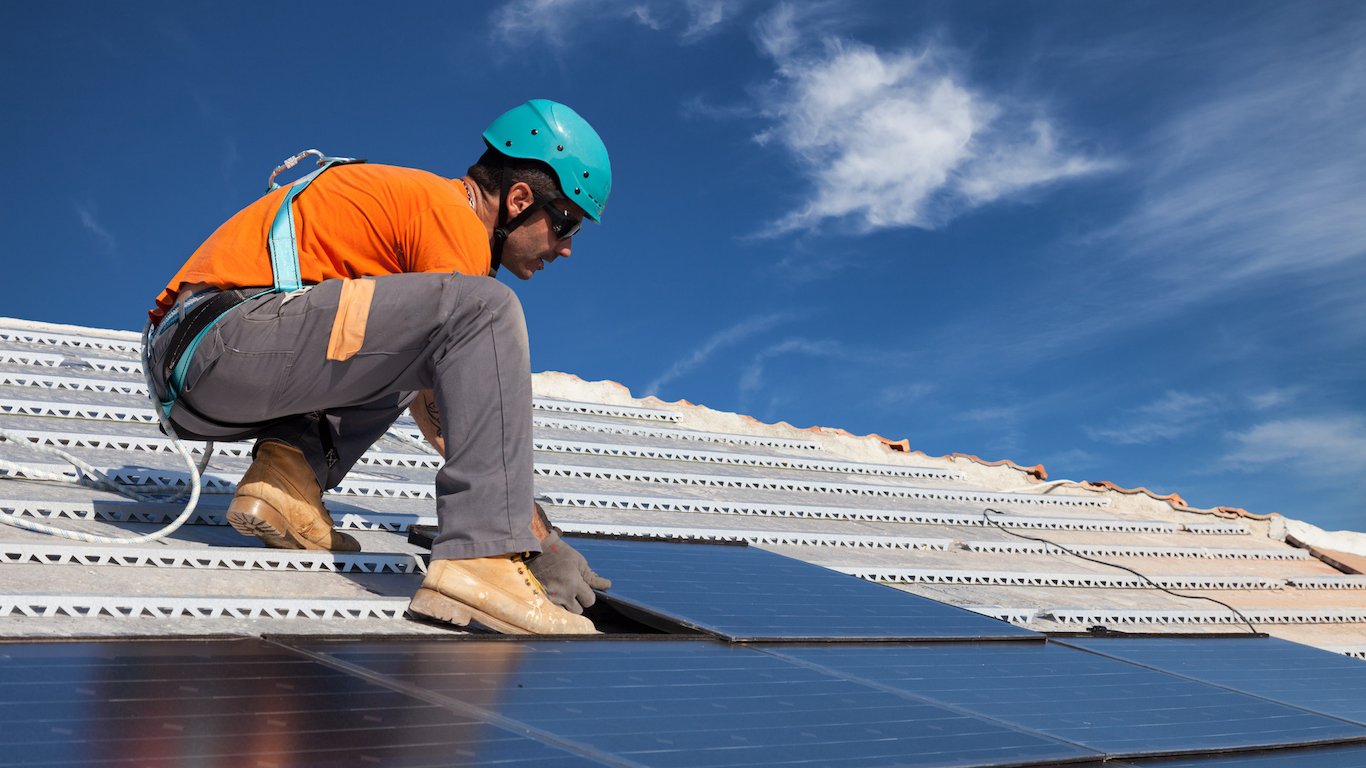

Sometimes, timing is everything when it comes to investing. Many companies come public just in time to catch a major sell-off in the broader market indexes, and the performance after such a ride is hard to blame on management. On July 25, Sunnova Energy International Inc. (NYSE: NOVA) saw its initial public offering of 14 million shares price at $12.00 per share. The Houston-based solar energy company originally had been expected to offer 17.6 million shares in a range of $12.00 to $13.00 per share.
What happened here is that the Sunnova faced weaker demand right after the stock market indexes were hitting all-time highs. The shares initially traded lower after the opening of its IPO, and it has traded as a busted deal for most of its time since. On the first day of trading, it closed at $11.25 on 4.53 million shares.
Two things have happened since then, and despite market weakness, its shares have traded in a range of $11.00 to $11.90 for most of the time. The company released results, showing a big loss, and the imposed underwriting syndicate quiet period has expired. The firms covering Sunnova have mostly issued positive ratings, but was it enough to pull new investors in?
Sunnova’s earnings report came with a net loss of almost $50 million in the first quarter, but the company also counted some 67,600 customers, with an adjusted EBITDA of $13.6 million for its quarter. The company also signed two new dealer agreements back in July, which will bring approximately 70% of its 2019 deal origination under multiyear exclusivity agreements.
As for the analyst ratings, they have been more positive than the trading reactions would have suggested.
Credit Suisse issued a new Outperform rating and a $14 price target. That is based on a dealer sales model, as the company is said to rely entirely on independent dealer relationships and third-party installations. This is viewed as an operating expense-lite approach that capitalizes customer acquisition costs without in-house install or sales-lead generation expense. Credit Suisse also likes that Sunnova’s targets are for greater than 30% annual sales growth in 2019 and 2020, versus projected peer growth of 15% to 18% for the year, and the firm sees Sunnova as attractively valued.
Bank of America Merrill Lynch had a new Buy rating and assigned a $15 price objective. The firm noted that Sunnova’s first earnings report as a public company was in line with expectations and should show that management’s confidence is clear on accelerating trends with no labor issues. The firm sees accelerating sales trend forming into 2020, and it sees meaningful positive inflection in 2020 on its cash supporting the growth outlook. The firm even noted it may have further upside as well.
While KeyBanc Capital Markets has an Overweight rating, the $13 price target may have not exuded much enthusiasm on a risk-reward basis.
Some other firms were even more aggressive:
- Robert W. Baird started it with an Outperform rating and a $15 target.
- Roth Capital started coverage at Buy with a $15 target price.
- Goldman Sachs issued a new Buy rating with a $16 price target.
- JPMorgan has a new Overweight rating and an $18 price target.
Shares of Sunnova were trading down 5.6% at $10.58 on Tuesday morning, but the 250,000 shares changing hands in the first two hours of trading was hardly any big endorsement one way or the other. Its post-IPO trading range was $10.00 to $12.00.
Sponsored: Find a Qualified Financial Advisor
Finding a qualified financial advisor doesn’t have to be hard. SmartAsset’s free tool matches you with up to 3 fiduciary financial advisors in your area in 5 minutes. Each advisor has been vetted by SmartAsset and is held to a fiduciary standard to act in your best interests. If you’re ready to be matched with local advisors that can help you achieve your financial goals, get started now.
Thank you for reading! Have some feedback for us?
Contact the 24/7 Wall St. editorial team.


